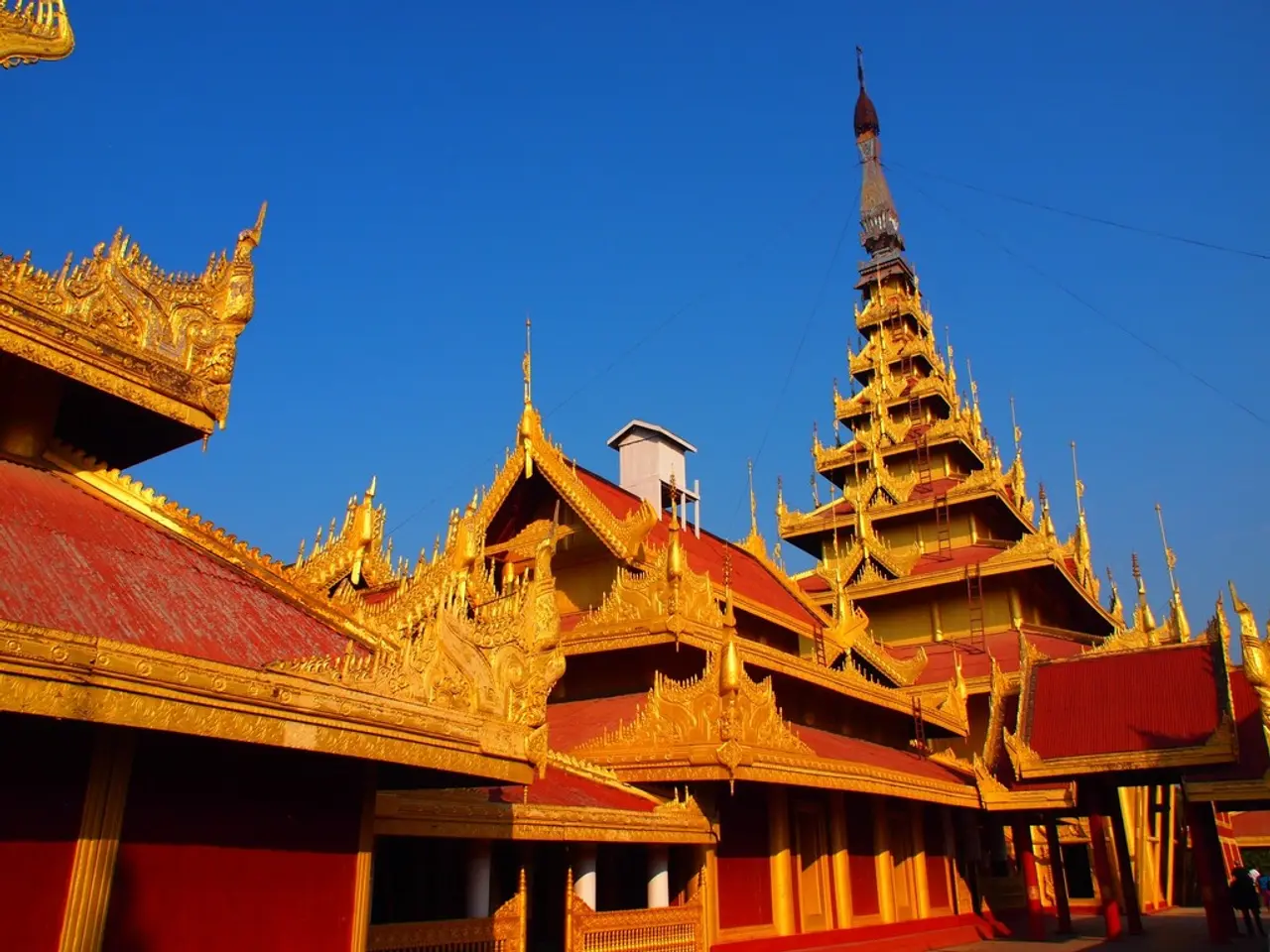Thailand finds itself embroiled amidst Cambodia's political turmoil, unwittingly becoming a pawn in power struggles
Thailand's involvement in the recent Cambodia crisis, marked by armed clashes along the border in July 2025, has raised concerns globally. The conflict, which escalated sharply on July 24 with fighting near the contested Ta Muen Thom temple, has resulted in over 30 fatalities and the evacuation of more than 200,000 people on both sides.
The crisis has complicated Thailand's international standing, drawing widespread attention, generating humanitarian concerns, and triggering diplomatic tensions that impacted ASEAN dynamics and broader global perceptions. Both Thailand and Cambodia accused each other of initiating aggression, creating a narrative of mutual victimhood that complicated international mediation efforts.
The conflict attracted responses from multilateral entities such as ASEAN—which called for an immediate ceasefire—and the United Nations Security Council, underlining the crisis's severity. The United States and ASEAN-led mediation efforts culminated in a ceasefire agreement on July 28, highlighting the global community's concern and active role in regional stability.
Thailand's international standing has been affected in several ways. Diplomatic relations have been strained, with Thailand downgrading diplomatic ties by recalling ambassadors and closing its border with Cambodia. The conflict has also challenged ASEAN cohesion in conflict resolution, affecting perceptions of Thailand’s role as a regional actor committed to ASEAN principles of peace and stability.
Attacks on civilian areas including hospitals and schools caused international humanitarian concern, potentially harming Thailand’s global image regarding adherence to international law and civilian protection. The conflict was partly driven by legacy political dynasties, suggesting the crisis exacerbates an already fragile relationship that influences Thailand's broader global diplomatic posture.
Prime Minister Anwar Ibrahim of Malaysia has expressed interest in mediating Thailand's southern border conflict, a move that could cement Malaysia's standing on the international peace stage should the mediation be successful. Malaysia, which has played a mediator role before, notably in the Mindanao conflict in the Philippines, is expected to play a role in Myanmar's election later this year.
However, Thailand faces pressure from both powerful nations and neighboring states, each pursuing its own interests. Cambodia has skillfully used those same powers and neighbors to exert pressure back on Thailand, making the peace fragile and built on shifting interests. Beijing is seeking to expand military influence in Cambodia through the Ream naval base and joint "Golden Dragon" drills.
Thailand, despite fighting alone, may find its future in the global context shaped by how it balances nationalistic aspirations with regional cooperation and international norms. Continued militarized disputes risk further isolation or criticism, while successful engagement in diplomatic and multilateral forums could restore trust and strengthen its international standing.
In a surprising development, Cambodia has proposed awarding Anwar the Ramon Magsaysay Prize, Asia's equivalent of the Nobel Peace Prize, for his efforts in mediating regional conflicts. This recognition could further bolster Malaysia's regional leadership and influence.
As the dust settles, it is clear that the Cambodia crisis has been a test of global diplomacy and regional stability. The international community will continue to watch closely as Thailand navigates this complex political landscape, seeking a peaceful resolution that maintains its standing on the global stage.
[1] The Diplomat [2] South China Morning Post [3] BBC News [4] The Straits Times [5] The New York Times
Read also:
- Weekly happenings in the German Federal Parliament (Bundestag)
- Southwest region's most popular posts, accompanied by an inquiry:
- Discussion between Putin and Trump in Alaska could potentially overshadow Ukraine's concerns
- Massive 8.8 earthquake hits off the coast of Russia's Kamchatka Peninsula, prompting Japan to issue a tsunami alert.








